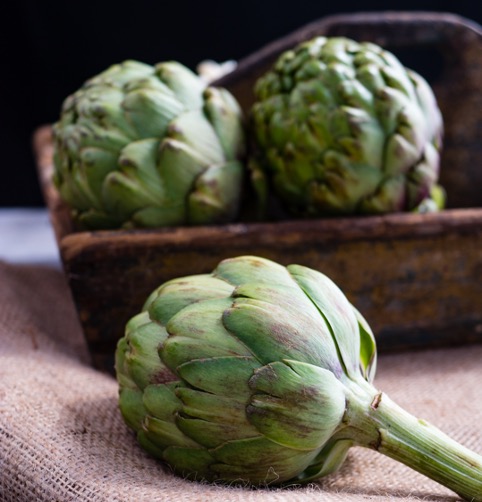Gut health has for many years been at the forefront of health research. However, with so much information out there, much of it misleading or not backed by science, we thought it was time to simply and scientifically explain what gut health really is.
The microbe population found in the human intestine is called the gut microbiota. The human gut microbiota contains tens of trillions of microorganisms, including at least 1000 different species of known bacteria with more than 3 million genes (150 times more than human genes).
1/3 of human gut microbiota is common to everyone, but 2/3 are specific to the individual.
How does the gut microbiota affect health?
The gut microbiota is thought to play a crucial role in human health and prevention of disease through a variety of mechanisms. Below are some of the functions of the gut microbiota:
- Helping the body digest foods that the stomach and small intestine cannot digest.
- Helping with the production of some vitamins such as vitamins B and K
- Playing an important role in the immune system
- Ensuring proper digestive functioning.
- Production of short-chain fatty acids, which are important for maintaining gut homeostasis and optimal immune function
Are there good and bad bacteria in the gut?
Despite suggestions in the media that there are ‘good’ and ‘bad’ bacteria, this is not the case. If a bacterial species is naturally part of your microflora it is unlikely to cause you harm if its population is maintained at a ‘normal level’.
Despite there not being good or bad bacteria, there are indications that an excessive level of certain species of bacteria has an impact on behaviour and disease. For example, Clostridium difficile is present in most gut microflora, but it is only when the activity levels rise dramatically that a serious infection can result.
While the general composition of the intestinal microbiota is similar in most healthy people, the species composition is highly personalised and largely determined by our environment and our diet. The hundreds of trillions of bacteria living in our digestive system feed off what we eat. For this reason, a varied and balanced diet is essential. Diet affects which species and strains of bacteria thrive.
However, additionally those bacteria that flourish can then send signals via the vagus nerve to tell you to keep eating the foods that they require. In this way, microbes can manipulate host cravings and eating behaviours for their own survival (Carson, Brown and Moffit, 2018).
“Dietary changes have the potential to alleviate symptoms, but they may also result in regimes that are nutritionally deficient in one or more respects. It is therefore vital, therefore, that whenever possible the medical practitioner should engage the services of a skilled nutritionist/dietician to evaluate a given individual’s nutritional status, instruct the patient on new diet plans, and monitor progress.”
(World Gastroenterology Organisation, 2018).
Can faecal samples tell me what my gut health is like?
The most common way of analysing microbial diversity in the gut is via faecal samples. However, this poses challenges because it is only a snapshot of the bacterial profile in the gut, and it does not necessarily represent the climax community.
For this reason, caution should be exercised when assigning behavioural change to certain bacterial presence in the gut. Another challenge is the lack of understanding regarding the effects of environmental factors. Transit time and consistency of stools all have an impact on the stool sample bacteria profile. A slower intestinal transit usually indicates a more developed eco system in the gut and a faster transit may indicate lower microbial diversity.
To read more about diets relating to gut health such as FODMAP click here.
To read about how your gut health may impact those who suffer with anxiety and depression click here.
What affects the gut microbiota?
Fibre
According to the British nutrition foundation “Dietary fibre” is a term that is used for plant-based carbohydrates that, unlike other carbohydrates (such as sugars and starch), are not digested in the small intestine. It also includes other plant components like lignin. As dietary fibre is not digested in the small intestine it reaches the large intestine or colon.” It is recommended that an adult’s intake of fibre should be 30g a day, on average only 18g of fibre is consumed.
To understand more about fibre, how to include more of it in your diet and good sources please read this article.
Ingested fibre may influence faecal microbiota profiles, cause changes in the complex gastrointestinal environment and promote the growth of bacteria in general (beneficial bacteria in particular). Oligosaccharides, including fructo-oligosaccharides, galacto-oligosaccharides, inulin and soluble fibres are regarded as prebiotics. These prebiotics may stimulate some of these ‘health-promoting bacteria’ earlier in the intestine section (World Gastroenterology Organisation, 2018).
Prebiotics and probiotics
Prebiotics
Prebiotics are substrates that are selectively used by host micro-organisms thus potentially conferring a health benefit. They are food for the beneficial microbes that lives on or in us.
Prebiotics have been shown in some research to increase levels of beneficial bacteria which in turn may:
Health benefits of prebiotics
- Improve bowel regularity
- Support your immune system
- Help control your desire to eat
- Improve mineral absorption
- Regulate your desire to eat, energy balance and glucose metabolism
Sources of prebiotics
Many plant foods contain different types of prebiotics.
- Artichokes
- Asparagus
- Bananas
- Berries
- Tomatoes
- Garlic
- Onions
- Legumes
- Green vegetables
- Wholegrain cereals

Prebiotics can also be manufactured artificially and added to foods or supplements.
Probiotics
Probiotics are live microorganisms, that when taken in sufficient amounts can provide health benefits. They can influence the microbes that colonize our body. Probiotics can grow, metabolise and interact with the resident microbes in our gut.
Health benefits of probiotics
- Support your immune system and digestion
- Help prevent overgrowth of harmful microorganisms
- Produce vitamins and aid nutrient absorption
- Help reduce the negative effects of antibiotics
- Aid the digestion of lactose
- Reduce the frequency of common infections
Sources
- Yoghurts
- Fermented milk drinks
- Kombucha
- Sauerkraut
- Pickles
- Miso
- Tempeh
- Kimchi
- Sourdough
- Some cheeses
- Supplements (it is important to note that probiotics are only effective if some of the bacteria reach the gut alive, rendering some supplements ineffective).
Fermented foods
Fermented foods start off as a raw product that contains certain bacteria, yeasts or moulds or which have them added at the start of the process. Fermented foods are beneficial as these microbes are still alive when they are consumed. Therefore, if a product has been further processed, for example heat treated, these microbes will be destroyed, and any potential benefit will be obsolete.
Health benefits of fermented foods
Fermented foods containing living cultures add beneficial bacteria to the digestive tract. Some research has shown they may
- Reduce risk of some diseases
- Help maintain a healthy intestinal microbiota
Conclusion
The health of your gut microbiota can strongly impact your health. Therefore, it is important to eat a wide variety of foods, especially those high in fibre, containing pre or probiotics or those that have been through a fermentation process.
Sources of information discussed in the article
International scientific association for probiotics and prebiotics
Link- https://isappscience.org/
Probiotics: Food Fact Sheet
British Dietetics Association
Link- https://www.bda.uk.com/resource/probiotics.html
Probiotics
NHS
Link- https://www.nhs.uk/conditions/probiotics/



1 Comment
[…] beans contain alpha-galactosides a type of prebiotic. Read this article to understand more about prebiotics and probiotics. These prebiotics are fermented by beneficial bacteria. These healthy fibres result in the formation […]